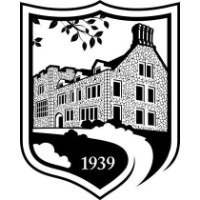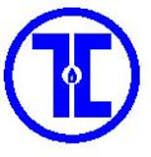What do they do?
Teach academic, social, and life skills to preschool-aged students with learning, emotional, or physical disabilities. Includes teachers who specialize and work with students who are blind or have visual impairments; students who are deaf or have hearing impairments; and students with intellectual disabilities.
Also known as:
Autistic Teacher, Deaf Education Teacher, Deaf Teacher, Early Childhood Special Education Teacher (ECSE Teacher), Early Childhood Special Educator (EC Special Educator), Early Intervention Teacher, ED Teacher (Emotional Disabilities Teacher), Exceptional Needs Teacher, Exceptional Student Education Teacher (ESE Teacher), Handicapped Teacher, Hearing Impaired Itinerant Teacher (HI Itinerant Teacher), Learning Support Teacher, Preschool Special Education Teacher, Resource Room Teacher, Resource Specialist, Resource Teacher, Self Contained Special Education Teacher, Severe/Profound Mental Handicaps Special Education Teacher, Special Day Class Teacher, Special Education Preschool Teacher, Special Education Resource Teacher, Special Education Teacher, Special Needs Teacher, Teacher
-
0.8%
Change
Ranks #N/A in job growth rate100Job Openings
Ranks #N/A in net job growth
-
Endicott College
Beverly, MA
-
Touro University
New York, NY
-
Ball State University
Muncie, IN
-
The University of West Florida
Pensacola, FL
-
Saint Joseph's University
Philadelphia, PA
Looking for colleges that offer a specific major? Use the College Match Tool to find your best-matched schools and discover your estimated Net Price!
- Doctorate or Professional Degree (4%)
- Master's degree (51%)
- Bachelor's degree (34%)
- Associate's degree (2%)
- Some college, no degree (4%)
- High school diploma equivalent (3%)
- Less than high school diploma (<1%)
Most Popular Majors that prepare Special Education Teachers, Preschool
-
#1
-
Degrees Granted
14,827
-
Female Students
12,675
-
Male Students
2,152
-
Median Starting Salary
$35,000
-
-
#2
-
Degrees Granted
1,339
-
Female Students
1,228
-
Male Students
111
-
Median Starting Salary
$35,000
-
-
#3
-
Degrees Granted
855
-
Female Students
829
-
Male Students
26
-
Median Starting Salary
$35,000
-
-
#4
-
Degrees Granted
436
-
Female Students
392
-
Male Students
44
-
Median Starting Salary
$35,000
-
-
#5
-
Degrees Granted
242
-
Female Students
216
-
Male Students
26
-
Median Starting Salary
$35,000
-
People in this career often have these skills:
- Speaking - Talking to others to convey information effectively.
- Active Listening - Giving full attention to what other people are saying, taking time to understand the points being made, asking questions as appropriate, and not interrupting at inappropriate times.
- Reading Comprehension - Understanding written sentences and paragraphs in work-related documents.
- Critical Thinking - Using logic and reasoning to identify the strengths and weaknesses of alternative solutions, conclusions, or approaches to problems.
- Social Perceptiveness - Being aware of others' reactions and understanding why they react as they do.
- Writing - Communicating effectively in writing as appropriate for the needs of the audience.
- Learning Strategies - Selecting and using training/instructional methods and procedures appropriate for the situation when learning or teaching new things.
- Monitoring - Monitoring/Assessing performance of yourself, other individuals, or organizations to make improvements or take corrective action.
- Active Learning - Understanding the implications of new information for both current and future problem-solving and decision-making.
- Instructing - Teaching others how to do something.
- Service Orientation - Actively looking for ways to help people.
- Judgment and Decision Making - Considering the relative costs and benefits of potential actions to choose the most appropriate one.
People in this career often know a lot about:
- English Language - Knowledge of the structure and content of the English language including the meaning and spelling of words, rules of composition, and grammar.
- Education and Training - Knowledge of principles and methods for curriculum and training design, teaching and instruction for individuals and groups, and the measurement of training effects.
- Psychology - Knowledge of human behavior and performance; individual differences in ability, personality, and interests; learning and motivation; psychological research methods; and the assessment and treatment of behavioral and affective disorders.
- Public Safety and Security - Knowledge of relevant equipment, policies, procedures, and strategies to promote effective local, state, or national security operations for the protection of people, data, property, and institutions.
People in this career often have talent in:
- Oral Expression - The ability to communicate information and ideas in speaking so others will understand.
- Oral Comprehension - The ability to listen to and understand information and ideas presented through spoken words and sentences.
- Written Comprehension - The ability to read and understand information and ideas presented in writing.
- Problem Sensitivity - The ability to tell when something is wrong or is likely to go wrong. It does not involve solving the problem, only recognizing that there is a problem.
- Speech Clarity - The ability to speak clearly so others can understand you.
- Deductive Reasoning - The ability to apply general rules to specific problems to produce answers that make sense.
- Written Expression - The ability to communicate information and ideas in writing so others will understand.
- Inductive Reasoning - The ability to combine pieces of information to form general rules or conclusions (includes finding a relationship among seemingly unrelated events).
- Speech Recognition - The ability to identify and understand the speech of another person.
- Information Ordering - The ability to arrange things or actions in a certain order or pattern according to a specific rule or set of rules (e.g., patterns of numbers, letters, words, pictures, mathematical operations).
- Selective Attention - The ability to concentrate on a task over a period of time without being distracted.
- Near Vision - The ability to see details at close range (within a few feet of the observer).
People in this career often do these activities:
- Develop strategies or programs for students with special needs.
- Teach life skills.
- Encourage students.
- Collaborate with other teaching professionals to develop educational programs.
- Monitor student performance.
- Monitor student behavior, social development, or health.
- Evaluate student work.
- Teach others to use technology or equipment.
- Administer tests to assess educational needs or progress.
- Establish rules or policies governing student behavior.
- Provide for basic needs of children.
- Set up classroom materials or equipment.
- Direct activities of subordinates.
- Discuss student progress with parents or guardians.
- Discuss problems or issues with supervisors.
- Maintain student records.
- Develop instructional objectives.
- Modify teaching methods or materials to accommodate student needs.
- Assist students with special educational needs.
- Plan educational activities.
- Develop instructional materials.
- Attend training sessions or professional meetings to develop or maintain professional knowledge.
- Read to students.
- Prepare reports detailing student activities or performance.
- Display student work.
- Create technology-based learning materials.
- Plan experiential learning activities.
- Maintain inventories of materials, equipment, or products.
- Distribute instructional or library materials.
This page includes data from:

 Occupation statistics: USDOL U.S. Bureau of Labor Statistics Occupational Employment Statistics
Occupation statistics: USDOL U.S. Bureau of Labor Statistics Occupational Employment Statistics









